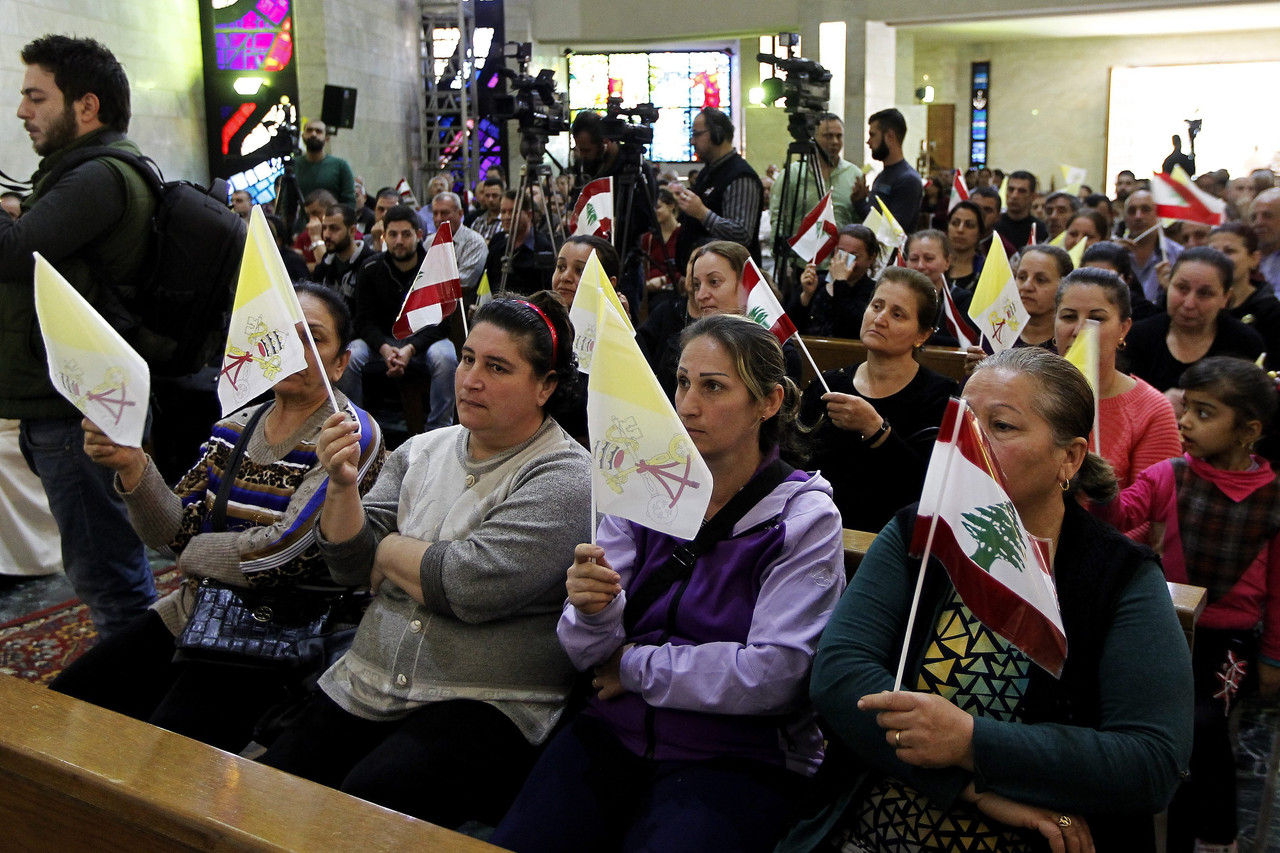
BEIRUT—Islamic State attacks on Syria’s Assyrian population have driven the Christian minority into Lebanon, further straining the impoverished nation and raising concerns that Christianity is being depleted in the Middle East as refugees move on to Europe.
The Lebanese government, which early this year tightened visa regulations in a bid to stem the tide of Syrian refugees, this month granted the Assyrians an exception, citing the Islamic State campaign that began in late February. More than 1.2 million Syrians have overwhelmed the country of four million, along with 500,000 Palestinian and Iraqi refugees.
A total of 21 Assyrians on Monday took the first direct flight carrying refugees from Qamishli—a route established this month to facilitate families fleeing Islamic State’s attacks on towns in Syria’s northern al-Hasakah province, sought because of their location on a crossroads linking Syria to Iraq. So far, around 100 Assyrians have fled the renewed violence. Islamic State has kidnapped some 250 Assyrians in the onslaught, many women and children.
When the plane touched down on Monday, Lebanese customs officials interrogated the new arrivals, who worried they would be turned away as customs officials tried to verify their stories.
Eventually, the line cleared, access granted to Lebanon, whose creaky infrastructure and dearth of jobs can barely sustain its own people.
“In Hasakah, everyone is slaughtering each other, so when we come here, at least make us feel welcome,” said an Assyrian businessman from Qamishli.
The businessman was one of the first to emerge from the panic-consumed “Syrians only” customs line, the elderly pushed around by security officers, while women clutched plastic bags teeming with belongings, waiting for hours to be questioned and cleared.
For Christians across the Mideast, Lebanon is both a refuge and a symbol of their struggles. After religious violence consumed the country in 1860, European powers pressed the Ottoman Empire to draw the borders of Lebanon, declaring its status as a homeland for the then-dominant Maronite Christians.
Demographics have since changed, with the country’s Shiite and Sunni Muslim populations eclipsing the sect, but Christians retain disproportionate political power.
Assyrians’ roots lie in ancient Mesopotamia—including modern day Iraq and northwest Syria—and they still speak dialects of Aramaic, the ancient language spoken by Jesus and his disciples.
“We consider Beirut our home and Lebanese our brothers, but it’s as if Syrians are monsters,” the businessman said, speaking of the general refugee fatigue that has consumed Lebanon since the Syrian revolution started in 2011.
That fatigue has morphed into violence, with Lebanese attacking Syrian refugees, angered by the rising inflation and rental prices the influx has caused. Syrians willing to work for less are snatching up jobs, aggravating already high Lebanese youth unemployment rates, which stood at 35% last year.
For Lebanon’s established Christian population, the latest flood of Assyrians seeking refuge in the country is bittersweet, a stopover as they seek resettlement abroad, further depleting the Middle East of its Christian heritage.
The influx comes after two-thirds of Iraq’s 1.5 million Christians fled sectarian violence in the years after the 2003 U.S. invasion, which strengthened the al Qaeda forces that eventually formed Islamic State in 2013, off the back of Syria’s civil war.
“The Europeans are finishing off what Islamic State started, to get rid of the Christians in the Middle East,” said Habib Afram, the president of Lebanon’s Syriac League, leading efforts to help Assyrians fleeing violence in Iraq and Syria. “They first flee the Islamic State in Syria, come to Lebanon, and then flee to Europe.”
Mr. Afram, like many interviewed, said he would prefer to see U.S. and European forces intervene militarily to save the Assyrians, rather than allow the extremist militants to overrun Christian towns, forcing them to resettle in the West.
The Syriac League has an annual budget of just $300,000 but provides for 3,000 Assyrian families from Iraq and Syria, relying on the goodwill of Lebanese Christians to take in the refugees.
At an Assyrian school in the foothills of Beirut, classes are overwhelmed with recent Iraqi and Syrian arrivals.
Some of the children there said their families had applied for resettlement abroad, with Australia a popular destination.
“We go where my father tells us,” said Ison, 8, whose family arrived from Syria on Christmas Day. When asked if he was excited about Australia, he nodded thoughtfully.
“We hope for a better life,” he said, before pausing to reflect on what he is most excited about should his family be granted resettlement to Australia: “Koalas! And kangaroos!”
Write to Maria Abi-Habib at maria.habib@wsj.com and Dana Ballout at dana.ballout@wsj.com



